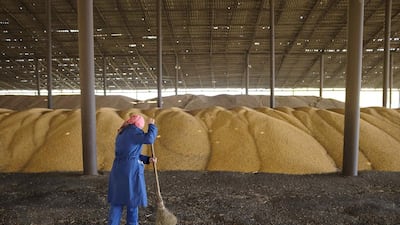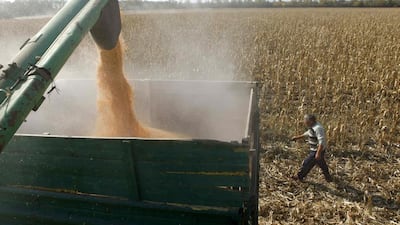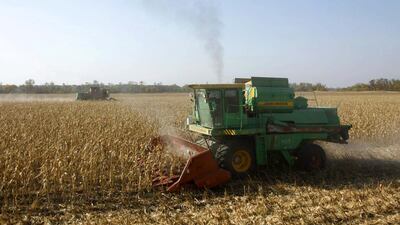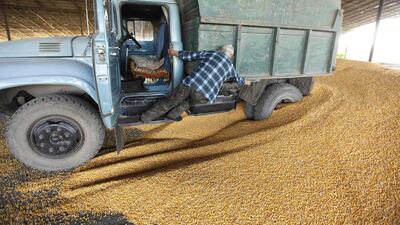Britain’s Prime Minister Boris Johnson has rejected suggestions that military convoys could be mounted to protect Ukrainian grain shipments through the Black Sea as efforts to ease the global food crisis founder without Russia support.
Speaking in the House of Commons, Mr Johnson was asked to defy the rules of the Montreux Convention, which has limited navies entering through the Bosporus and deploying “larger forces in the Black Sea”.
“No, we are not looking at that,” he said. “There are alternative solutions that don’t involve the presence of UK or other warships in the Black Sea.”
Tobias Ellwood MP, the chairman of the defence select committee, called on the UN to create “a humanitarian safe haven around that critical port of Odesa so those vital grain exports cannot only reach Europe but also Africa and prevent a famine”.
Mr Johnson said discussions about an emergency convoy were continuing but that “we may have to prepare for a solution that does not depend upon Russian consent” because Moscow may not comply.
When challenged over diplomatic efforts to address the high price of oil since the invasion of Ukraine by Russia began on February 24, Mr Johnson said the major producers including Saudi Arabia and Opec+ were being urged to do as much as they could.

“There maybe some question about quite how much more the Saudis could pump out at this particular moment,” he said.
“But there's no doubt that we are going to need a lot more Opec+ oil. The UK has strong and productive relations with Saudi Arabia, and we need to make sure that the whole of the West does as well.”
Former Labour cabinet minister Hilary Benn urged UK officials to secure a UN General Assembly resolution to create a humanitarian safe haven around the port of Odesa to ensure “vital grain exports cannot only reach Europe but also Africa and prevent famine there”.
Mr Johnson said London was a supporter of the UN efforts to mediate an agreement on opening up the Black Sea.
“The work is being led by the UN Secretary General Antonio Guterres. The UK is doing a huge amount to support (it),” Mr Johnson said.
“But as I’ve told the house before, we may have to prepare for a solution that does not depend upon Russian consent because that may not be forthcoming.
“What we are also looking at is the possibility of using the rivers, using the Danube in particular, using the railways to try to get the grain out in smaller quantities than we would be able to do with a giant maritime convoy through the Black Sea.
“So we are looking at all the possible options.”
He said smaller scale shipments of grain would open up the Danube as a conduit for Ukraine grain to markets where the country's products were in high demand.
“He [Mr Benn] is right about the urgency, we will increasingly have to look at alternative means of moving that grain from Ukraine if we cannot use that sea route,” Mr Johnson said.
In response to another MP, Mr Johnson said the alternative routes would come into being “in the event that we are forced to do an operation that does not involve the consent of the Russians, as I think is all too likely”.
Mr Johnson also appeared to imply that the cut to the British Army of 4,000 troops taking it to 72,00 was “under constant review” suggesting the possibility it could be reversed.
He was asked by Johnny Mercer MP to confirm if “no directive had been issued” by the Treasury “on defence numbers or numbers of personnel” should the security situation in Europe continue to change.
“He speaks wisely on this matter, which he knows very well and we keep the actual numbers under constant review,” the prime minister said.
“The most important thing for our troops is that they've got also got to have the best equipment in the world and that's what we're paying for.”











